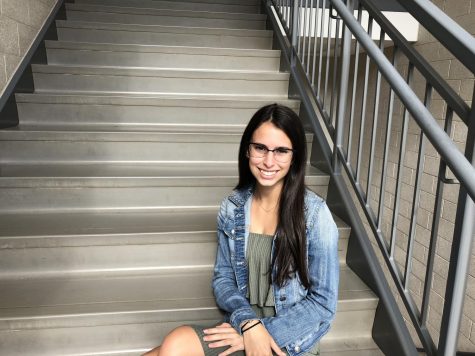What are School Resource Officers?
History, purpose of on-campus officers is investigated
Will Sarrasin, Brian Pemberton, Larissa Andrade, and Rebecca Poretsky
June 26, 2018
Recent school tragedies have brought up questions about school security and the role that Resource Officers, or police officers who work at high schools and directly with students and faculty, have when protecting the students and faculty on a daily basis.
While School Resource Officers [SRO] have been more prominent in the news recently, they have had a role in schools around the country for over 50 years.
According to the Blackfoot Idaho Police Department website, which chronicles the history of SRO’s in US schools, Resource Officers were first placed in Flint, Michigan in the late 1950’s in hopes to improve the relationship between police officers and the youth and were originally seen more as counselors and teachers around school.
“The position of the School Resource Officer is essentially meant to be a community building relationship to strengthen the relationship with the police department and the schools,” Algonquin Resource Officer Michael Bisset said. “The students are certainly part of the community and having an SRO allows for that communication and community building to increase.”
School Resource Officers, as we see them and know them today, were not widespread until the 1990’s when school shootings became more prominent in the United States. With 23 weeks into the year of 2018 as of May 30, there have been a total of 43 school shootings, whether reported by national media or not, averaging to at least one shooting per week since the year has begun.
Algonquin got its first Resource Officer in the early 1990’s, an SRO named William Lyver, who is currently the Northborough Chief of Police. Since Lyver, there have been several other SRO’s after him.
“There’s so much more than saying school Resource Officer,” Principal Dr. Sara Pragluski Walsh said. “The gaps that he is able to bridge, the voids that he can fill for us and the knowledge that he brings to the school, not only is life saving, but it’s a part of what makes Algonquin, Algonquin.”
Since the recent shootings in high schools such as Santa Fe, Texas and Parkland, Florida and several other schools, Resource Officers are in the spotlight and are recognized as important more than ever before. According to Bisset, SRO’s check the doors around school to make sure they are in place, respond to school situations and work with teachers to find the best solution in any given crisis.
Not only do SRO’s maintain school safety, but Bisset also speaks in several classes such as Susan Vaughan’s Forensics Science Classes, a class that focuses on how science is used to solve crimes.
“He comes and does a talk in the beginning of the semester to all the forensics classes about his job, his role in the school and law enforcement in general,” Vaughan said. “He’s always very open with the kids about answering their questions.”
Bisset shares his own personal experiences and relates it to what the class is currently learning, whether they are learning about law enforcement or toxicology.
“[Bisset] is wonderful at working in the classroom,” Walsh said. “He’s a fantastic addition to our crisis team, phenomenal liaison to the Northboro Police Department [NPD] and helping create that positive community of the school and police department working together.”
A School Resource Officer’s goal is not only to protect students from harm’s way, but to also help students develop positive relationships with the police.
“If I happen to have nothing that I absolutely have to do or I’m told to do at any point in the day, then I spend that part of my day doing everything I can to get to know more kids, more students and keeping the relationships that I have with students that are here,” Bisset said.
SRO’s can also help students with both legal and personal issues happening at school or at home.
“One thing they’ve been finding over years and years of study is that with adolescence, having a positive relationship or positive connection with an adult figure can be one of the most crucial elements to keeping them out of trouble and not into a criminal justice situation,” Bisset said.
Some students feel that having an officer on school grounds helps to sustain the overall safety.
“I think they provide great security to [Algonquin],” junior Chris Wang said. “It’s a benefit to the school in general.”
While on the other hand, students may feel indifferent to having a SRO patrolling the school hallways.
“It doesn’t make me feel that much safer,” junior Steven Moffa said. “We live in a quiet community; I doubt we have anything bigger than small drug busts, or speeding tickets or DUI’s. Are we really equipped with officers who are prepared for [life threatening] situations, both mentally and physically?”










